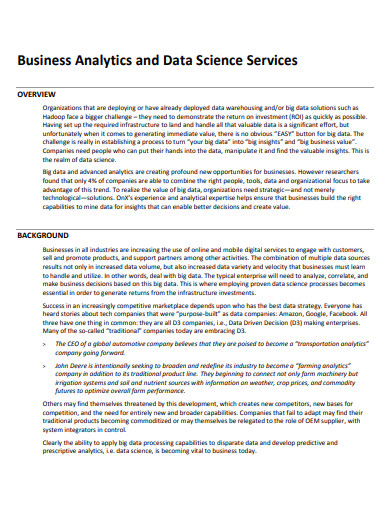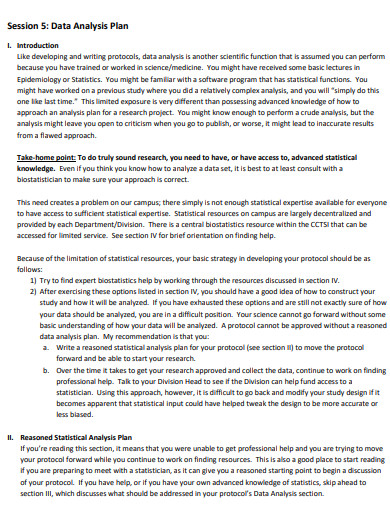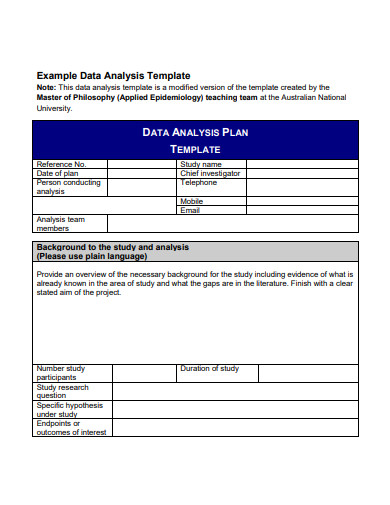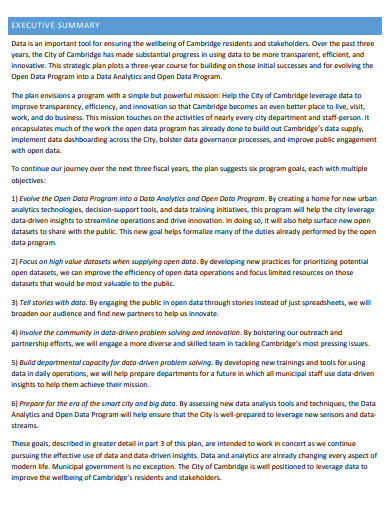Data analysis is defined as the overall process of cleaning, transforming, and modelling data in order to discover useful information to be used in decision-making. In the world on business, data analysis includes helping managers make strategic decisions based on the data that was gathered, as well as achieve major goals and solve complex problems by collecting and analyzing the most useful information that is relevant to the needs of the company. Businesses often hire third party data analysts to help them with this exact thing. Most of the time, companies do not possess the ability and resources to gather and analyze the data themselves. That’s why they seek help from third party companies to help them make decisions and derivations from the data that was initially gathered. Which of course creates the demand in the market, and which is also why you are here, because you want to or you already have a business that you want to improve.
Businesses are already very complex entities to manage, especially if you care so much about your business that you want nothing else for it but to succeed. Starting any kind of business can be really expensive, not to mention difficult, and trying to make a venture work in an industry that is highly competitive and centralized is yet another layer of challenge for business owners like yourself. It can be quite a chore to keep track of all the components of your company all at once, trying to make sure that everything is covered and taken into account. That is why it is very important for companies and businesses to come up with a comprehensive layout or a plan that allows them to keep everybody on track for all business operations, especially managers and supervisors of the venture. A well written business plan does really well in tying the idea behind the business all together, keeping every operation as smooth and without as much problems as possible.
Trying to operate a business without a business plan is usually not a good idea, and most of the time it is actually highly discouraged. That’s because more often than not it translates to you not caring about where your venture is going and you have no vision of what you actually want to achieve with this business. Don’t set you and your company up to failure by diving into a venture completely and utterly blind. Working with a business plan comes with a lot of benefits, including, being able to work with new ideas without having to worry about it not working as you would have expected, since you have already covered the possibilities of that in your business plan. Get the best out of your business plan by first checking out these data analysis business plan samples that we have listed for your down below. Once you’ve acquainted yourself well enough with the document, you can then use these samples as guides or even as templates for when you decide to write your own business plan.
4+ Data Analysis Business Plan Samples
1. Data Analysis Business Plan
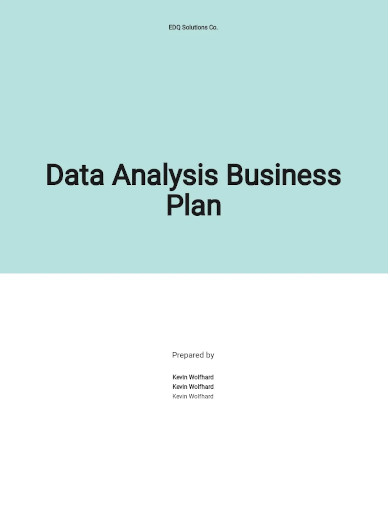
2. Business Analytics and Data Science Services Plan
3. Sample Data Analysis Business Plan
4. Quantitative Data Analysis Business Plan
5. Data Analysis Business Strategic Plan
What Is a Data Analysis Business Plan?
A business plan is a document that enumerates how a business or a company would define the objectives that it has set for itself and the strategies that the management is willing to take to reach those objectives. It works like a roadmap that the entire organization can follow guided by the insights of their departments like marketing, financial, and operational. Aside from its overall base purpose, business plans can also be used to attract potential investors and prospective business partners even before the business has been properly established to secure additional funds and support in its earlier stages of development. A quality that makes a business plan even more viable, especially for new businesses and startup companies.
Though despite that, every company should be able to come up with their own business plan, just so they have something that they can periodically update and review to see how much progress has been made into reaching the goals that they have set, as well as take a look at the circumstances that they have been working on and how has it changed over time. A well written and well drafted business plan is a document that allows managers to highlight the estimated costs and projected outcomes of the venture and inspect the potential pitfalls every decision that the management has made may bring. And even though the document is widely used in the business and corporate industry, it is still pretty rare to see two business plans that are completely identical of each other, even from companies that operate within the same industry. That’s because most of the time, a company has its own unique way of dealing with its own problems, which then leads to unique strategies and solutions.
Elements of a Data Analysis Business Plan
The length of a business plan varies depending on the nature and the scope of the business that the document will cover. Though it is pretty usual for business plans to be about 15-20 pages long. And despite the fact that no two business plans are completely alike, they still operate with jut about the same elements. These basic elements will be listed down and discussed in more detail down below.
1. Executive summary
A business plan should begin with an executive summary that highlights what the company is and what the organization stands for. Executive summaries present information regarding the mission-vision values of the company, company leadership, employee and employee operations, and the location where the business operates.
2. Products and services
In the following section, the business plan needs to present the products and the services that they are currently offering to the market. It has to contain the list of pricing, product lifespan, as well as the benefits that their clients may gain once they have engaged with the business. You can also include factors like the manufacturing and production processes, patents, as well as proprietary technology.
3. Market analysis
A business needs to have a perfectly clear idea of its target market and its respective demographics. Proper market analysis will give you an outline of who or what the current competition is, and how you can overtake that competition. It should also be able to outline the expected consumer demand, and how difficult it would be to take advantage of it.
4. Market strategy
After properly analyzing your market, you now need to identify the strategies that the company will use to attract the target market or customer base, and how it intends to keep that customer base continuously doing repeat business with your company. Highlight a clear distribution channel for your marketing and advertising campaigns, and through which medium will these campaigns be disseminated through.
5. Financial planning
A properly laid out financial plan can seem very attractive, especially for investors and and business partners who want to become a part of a venture that has the ability to return a good investment. Financial statements, balance sheets, and other financial information needs to be presented in this section.
6. Budget
Every company needs to have a proper budget in place for their company. It should include costs, manufacturing, development, marketing, and other expenses that your business has or will have made.
FAQs
What does a data business analyst do?
Business analysts use data to help companies and organizations make more effective business decisions.
Is data analytics a good career?
Yes, data analytics is a very good career path to take due to the continuously high demand brought upon by an increase in salary in some industries.
Is data analysis hard?
It can be quite challenging yes, because the skills needed to perform data analysis can be highly technical and not to mention demanding.
One more very important quality of a business plan that you have to remember is that the document works best when it is ‘live’. When it is constantly updated and reviewed overtime, to adapt to how the business grows and how the circumstances that the management has been working on has changed.
Related Posts
FREE 9+ 30-Day Marketing Plan Samples in PDF | MS Word | Apple Pages | Google Docs
FREE 3+ Sales Team Action Plan Samples in PDF | MS Word | Apple Pages | Google Docs
Marketing Plan For Small Business Samples
FREE 7+ Fashion Business Plan Samples in PDF
FREE 10+ Sprint Planning Samples In MS Word | Google Docs | PDF
FREE 10+ Wedding Planning Samples in MS Word | Apple Pages | Powerpoint | PDF
FREE 9+ Monthly Study Planner Samples in PSD | Illustrator | InDesign | PDF
FREE 9+ Sample Curriculum Planning Templates in PDF | MS Word
FREE 10+ Teacher Development Plan Samples in MS Word | Google Docs | Apple Pages | PDF
FREE 10+ Basketball Practice Plan Samples in PDF
FREE 12+ School Business Plan Samples in PDF | MS Word | Apple Pages | Google Docs
FREE 7+ Client Strategic Plan Samples in PDF | MS Word
FREE 11+ Trucking Business Plan Templates in PDF | MS Word | Google Docs | Pages
FREE 7+ Small Hotel Business Plan Samples PDF | MS Word | Apple Pages | Google Docs
FREE 14+ Bakery Business Plans in MS Word | PDF | Google Docs | Pages

